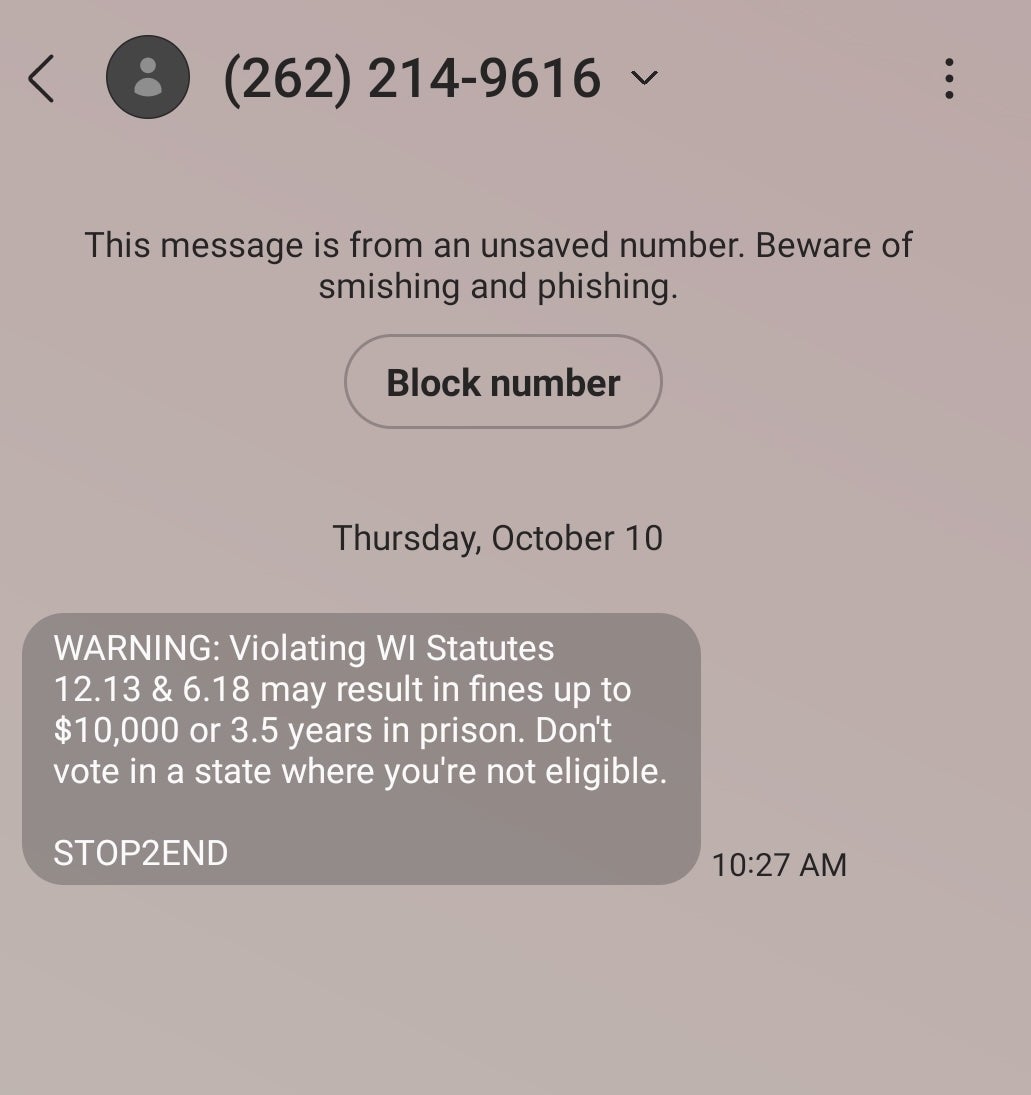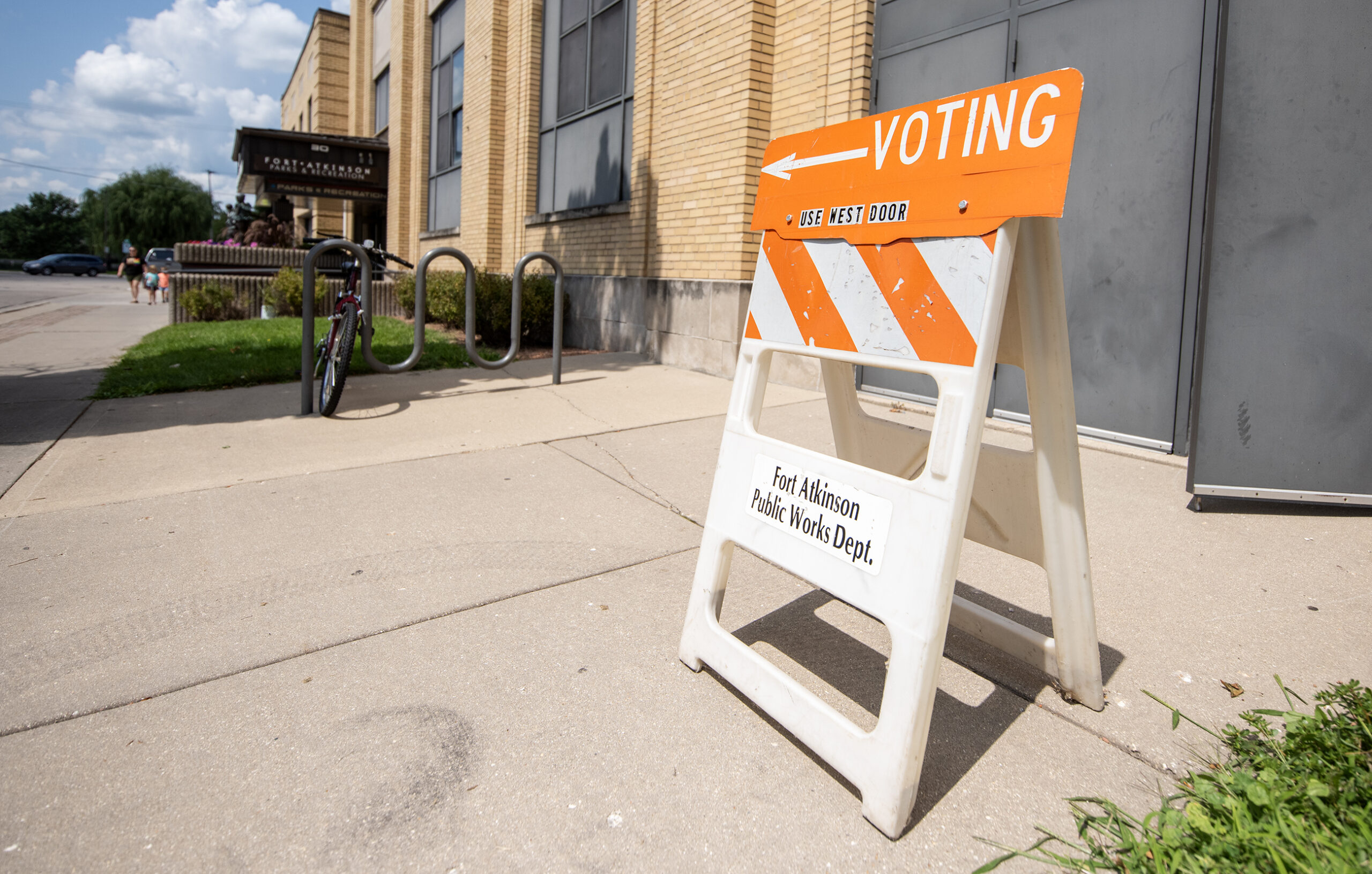Voting rights groups are asking federal and state-level law enforcement to investigate text messages that warn of prison time for voting illegally in Wisconsin.
In a letter this week to Wisconsin Attorney General Josh Kaul and U.S. Attorney General Merrick Garland, the League of Women Voters of Wisconsin referred to a recent spate of anonymous messages.
The texts cite a section of Wisconsin’s election law, and reference penalties for violating that law, including imprisonment and a fine up to $10,000. The messages caution “don’t vote in state where you’re not eligible.”
Stay informed on the latest news
Sign up for WPR’s email newsletter.
Debra Cronmiller, who leads Wisconsin’s League of Women Voters, says based on reports to the League, it appears the messages may have been sent en masse to target college students and Wisconsinites ages 18 to 25.
Some young people who work for the League got the messages themselves, Cronmiller said. Cronmiller says it’s also possible that the messages were sent to Wisconsinites who requested absentee ballots.
Cronmiller called the texts “misleading,” and argues they violate state and federal laws that prohibit voter intimidation.
“This could be confusing and it could, in fact, discourage or dissuade an eligible voter from casting their ballot,” Cronmiller said.
Eligible college students in Wisconsin can legally vote here
Under Wisconsin election law, you need to live in your voting district for at least 28 days before registering to vote. That means students from out-of-state who come to Wisconsin for college can choose to vote here.
“Now many students and other young voters are fearful that they will face criminal prosecution if they register and exercise their right to vote—because of a malicious, inaccurate text sent by an anonymous party,” the letter signed by the League and by the progressive group Free Speech for People says.
Wisconsinites reported receiving the text messages last week, while campaigning reaches a fever-pitch in a state where the margin of victory in four of the last six presidential elections has come down to less than a percentage point.
Hundreds of thousands of Wisconsin voters have already turned in their absentee ballots ahead of Election Day on Nov. 5
Cronmiller says it’s not clear what group sent the texts, or exactly how many people received them. The League’s letter urges the attorneys general to investigate the source of the messages, make the sender’s identity public and “take appropriate enforcement action against the perpetrators.”
The U.S. Attorney General’s Office did not respond to a request for comment. A Wisconsin spokesperson said the state’s Department of Justice “takes allegations of potential violations of election law seriously.”
The statement added, “Wisconsin DOJ is reviewing the information provided and will assess what if any follow-up is appropriate based on the facts and the law.”
While speaking to reporters this week, Wisconsin Elections Commission Administrator Meagan Wolfe declined to comment on the specifics of the text messages, noting that they could eventually become the subject of a complaint before the commission.
But Wolfe urged voters to stick to official sources, such as information from a local clerk.
“If you’re getting these concerning or questionable contacts from third-party groups, I wouldn’t trust that information,” she said. “I would go right to the official source. I’d call your election official.”
WPR’s Evan Casey contributed reporting.
Wisconsin Public Radio, © Copyright 2025, Board of Regents of the University of Wisconsin System and Wisconsin Educational Communications Board.




